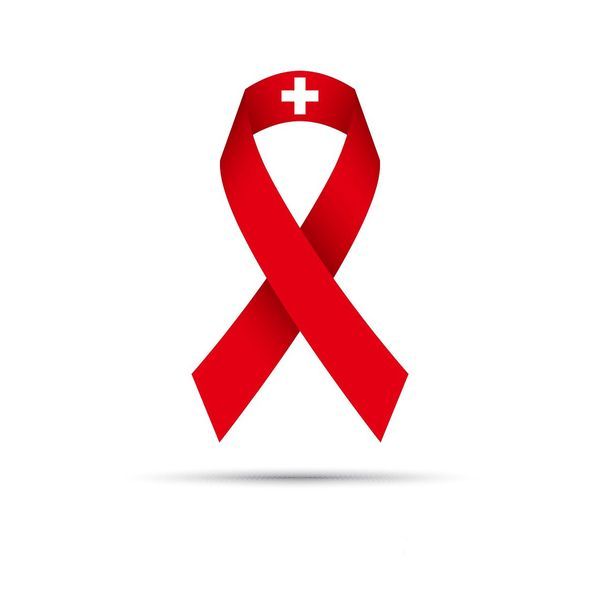Hereditary Cancer Panel – Women
This test detects mutations in 74 genes associated with 23 different types of cancer in women, including breast cancer, ovarian cancer, colorectal cancer, endometrial cancer, gastric cancer, kidney cancer, thyroid cancer, parathyroid cancer, multiple endocrine adenomas, neurofibromatosis, pheochromocytosis, bladder cancer, ureteral cancer, familial paraganglioma, retinoblastoma, melanoma, multiple osteochondroma, gastrointestinal tumors, hereditary neuroblastoma, tuberous sclerosis, hereditary nephroblastoma.
Genetic testing for hereditary and somatic cancers is the basis for proper diagnosis and treatment in affected patients. They are also indispensable in the early prevention of their relatives, who are carriers of genetic mutations associated with the risk of developing cancer. We can guide doctors in choosing the right therapeutic options with the help of genetic tests for detecting and preventing cancer.
GENICA Lab analyses a wide range of genetic variants, enabling early prevention, cancer diagnosis, prognosis, treatment choice and post-therapeutic monitoring of the patient.
Diagnostic Range: ALK, APC, ATM, AXIN2, BAP1, BARD1, BLM, BMPR1A, BRCA1, BRCA2, BRIP1, CDC73, CDH1, CDK12, CDK4, CDKN1B, CDKN2A, CHEK2, EPCAM, EXT1, EXT2, FANCG, FH, FLCN, GALNT12, KIT, MAX, MEN1, MET, MLH1, MLH3, MRE11A, MSH2, MSH3, MSH6, MUTYH, NBN, NF1, NF2, NTHL1, NTRK1, PALB2, PDGFRA, PHOX2B, PMS1, PMS2, POLD1, POLE, PRSS1, PTCH1, PTCH2, PTEN, RAD50, RAD51C, RAD51D, RB1, RET, SDHA, SDHAF2, SDHB, SDHC, SDHD, SMAD4, SMARCA4, SPINK1, STK11, SUFU, TMEM127, TP53, TSC1, TSC2, VHL, WT1, XPC
Diagnostic Method: Next-Generation Sequencing
Research Material: Venous blood
Results within: 20 business days
Fee: BGN 1,400
Clinical application
Hereditary carcinoma
Hereditary Cancer Panel - Men
The test detects mutations in 79 genes associated with 23 different types of cancer in men, including breast cancer, colorectal cancer, prostate cancer, stomach cancer, kidney cancer, thyroid cancer, parathyroid cancer, multiple endocrine adenomas, neurofibromatosis, pheochromocytosis, bladder cancer, ureteral cancer, familial paraganglioma, retinoblastoma, melanoma, multiple osteochondroma, gastrointestinal tumors, hereditary neuroblastoma, tuberous sclerosis, hereditary nephroblastoma.
Genetic testing for hereditary and somatic cancers is the basis for proper diagnosis and treatment in affected patients. They are also indispensable in the early prevention of their relatives, who are carriers of genetic mutations associated with the risk of developing cancer. We can guide doctors in choosing the right therapeutic options with the help of genetic tests for detecting and preventing cancer.
GENICA Lab analyses a wide range of genetic variants, enabling early prevention, cancer diagnosis, prognosis, treatment choice and post-therapeutic monitoring of the patient.
Diagnostic Range: ALK, APC, ATM, ATR, AXIN2, BAP1, BARD1, BLM, BMPR1A, BRCA1, BRCA2, BRIP1, CDC73, CDH1, CDK12, CDK4, CDKN1B, CDKN2A, CHEK2 ,EPCAM, EXT1, EXT2, FAM175A, FANCA, FANCG, FH, FLCN, GALNT12, GEN1, HOXB13, KIT, MAX, MEN1, MET, MLH1, MLH3, MRE11A, MSH2, MSH3, MSH6, MUTYH, NBN, NF1, NF2, NTHL1, NTRK1, PALB2, PDGFRA, PHOX2B, PMS1, PMS2, POLD1, POLE, PRSS1, PTCH1, PTCH2, PTEN, RAD50, RAD51C, RAD51D, RB1, RET, SDHA,
Diagnostic Method: Next-Generation Sequencing
Research Material: Venous blood
Results within: 20 business days
Fee: BGN 1,400
Clinical application
Hereditary carcinoma
Cervical Cancer
Cervical cancer is the second most common cancer globally among women between the ages of 20 and 55. It is caused by the human papillomavirus (HPV). Cervical cancer is the final stage of untreated HPV infection, characterized by the continuing presence of HPV and detected by repeated DNA testing of cervical samples. HPV infection is primarily sexually transmitted and usually occurs without clinical signs or symptoms.
The process from HPV infection to cancer is slow. This makes the initiating infections and the pre-disease lesions treatable with regular prophylaxis, thus preventing the development of cervical cancer.
Up to 93% of cervical cancers are preventable with GENICA’s diagnostic solutions. READ MORE
Diagnostic Range: HPV from 12 to 33 types
Diagnostic Method: PCR Assay
Research Material: Cervical specimen
Results within: 1-5 business days
Fee: BGN 66 - BGN 167 depending on the test selected
Clinical application
Cervical dysplasia; Cervical cancer; Oral cancer; Cancer of the vulva and vagina; Penile cancer; Anal cancer; Genital warts
Download Our Brochure
Download Our Brochure
Hereditary breast cancer and ovarian cancer - 26 genes
This test detects mutations in 26 genes associated with breast cancer and ovarian cancer.
Diagnostic Range: BRCA1, BRCA2, CHEK2, PALB2, BRIP1, TP53, PTEN, STK11, CDH1, ATM, BARD1, MLH1, MRE11A, MSH2, MSH6, MUTYH, NBN, PMS1, PMS2, RAD50, RAD51C, RAD51D, NF1, EPCAM, SMARCA4, CDK12
Diagnostic Method: NGS
Research Material: Venous blood
Results within: 20 business days
Fee: BGN 1,200
Clinical application
Breast Cancer
Gynecologic Oncology
A group of DNA tests associated with gynecologic cancers, including cervical cancer (SEE MORE), endometrial cancer, ovarian cancer, breast cancer.
Diagnostic Range: Human papillomavirus (HPV) associated with cervical cancer; MLH1, MSH2, MSH6, PMS2, EPCAM, STK11, TP53, PTEN, MUTYH associated with hereditary endometrial carcinoma; BRCA1, BRCA2, CHEK2, PALB2, BRIP1, TP53, PTEN, STK11, CDH1, ATM, BARD1, MLH1, MRE11A, MSH2, MSH6, MUTYH, NBN, PMS1, PMS2, RAD50, RAD51C, RAD51D, NF1, EPCAM, SMAR HOXB13 associated with ovarian and breast cancer
Diagnostic Method: Genetic analysis
Research Material: Cervical specimen / Biopsy material / Venous blood
Results within: 5-20 business days for various analyzes
Fee: From BGN 48 to BGN 1,800 for various analyzes
Clinical application
Cervical cancer; Endometrial cancer; Ovarian cancer; Breast cancer
Download Our Brochure
Hereditary breast cancer and ovarian cancer - 2 genes
This test detects mutations in the two main genes associated with breast cancer and ovarian cancer.
Diagnostic Range: BRCA1, BRCA2
Diagnostic Method: NGS
Research Material: Venous blood
Results within: 20 business days
Fee: BGN 1200
Clinical application
Breast cancer, ovarian cancer
Oncomutations
The pharmacogenetics of cancer identifies patients at risk of severe toxicity or those who are likely to benefit from a particular treatment. Thus, it helps to design individualized cancer therapy.
There are significant differences between the pharmacogenomics of cancer and other diseases.
Diagnostic Range: IDH1/IDH2
Diagnostic Method: Sanger sequencing/ RFLP
Research Material: Venous blood
Results within: 10 business days
Fee: BGN 150
Clinical application
Personalized therapy
Hereditary pancreatic cancer 12 genes
This test detects mutations in 12 genes associated with pancreatic cancer.
Diagnostic Range: BRCA2, PALB2, BRCA1, MLH1, MSH2, MSH6, PMS2, PRSS1, SPINK1, ATM, CDKN2A, FANCG
Diagnostic Method: NGS
Research Material: Venous blood
Results within: 20 business days
Fee: BGN 1,200
Clinical application
Pancreatic cancer
Hereditary colon carcinoma (COLORECTAL CANCER) - 23 genes
This test detects mutations in 23 genes associated with colon cancer.
Diagnostic Range: APC, AXIN2, EPCAM, MLH1, MLH3, MSH2, MSH6, MUTYH, PMS1, PMS2, STK11, PTEN, SMAD4, BMPR1A, ATM, BLM, CHEK2, GALNT12, MSH3, NTHL1, POLD1, POLE, TP53
Diagnostic Method: NGS
Research Material: Venous blood
Results within: 20 business days
Fee: BGN 1,200
Clinical application
Colon cancer
Hereditary prostate carcinoma (PROSTATE CANCER) - 23 genes
This test detects mutations in 23 genes associated with prostate cancer.
Diagnostic Range: BRCA1, BRCA2, CHEK2, HOXB13, MSH2, MSH6, PMS2, MLH1, ATM, BRIP1, PALB2, MRE11A, NBN, RAD51C, RAD51D, ATR, FAM175A, GEN1, MUTYH, TP53, EPCAM, FANCA, CDK12
Diagnostic Method: NGS
Research Material: Venous Blood
Results within: 20 business days
Fee: BGN 1,200
Clinical application
Prostate cancer
MGMT Hypermethylation
The pharmacogenetics of cancer identifies patients at risk of severe toxicity or those who are likely to benefit from a particular treatment. Thus, it helps to design individualized cancer therapy. There are significant differences between the pharmacogenomics of cancer and other diseases.
Diagnostic Range: Hypermethylation of the MGMT promoter region
Diagnostic Method: Sanger sequencing/ RFLP
Research Material: Venous blood
Results within: 10 business days
Fee: BGN 270
Clinical application
Personalized therapy
Next-Generation sequencing (NGS)/ Whole Exome Sequencing (WES)
This test detects mutations in 20,000 genes associated with various hereditary conditions. It analyzes packages of target genes associated with specific conditions according to clinical diagnosis (Cancer Panel, Pediatric Panel, Diabetes Panel, Epilepsy Panel, Intellectual Deficiency/Autism Panel, Skeletal Dysplasias Panel, Cardiomyopathies Panel, etc.).
Diagnostic Range: ~20 000 genes
Diagnostic Method: Next-Generation Sequencing
Research Material: Venous blood
Results within: 2 to 4 months
Fee: BGN 3800
Clinical application
Cancer, childhood diseases, diabetes, epilepsy, intellectual deficit/autism, skeletal dysplasia, cardiomyopathies, etc.
Multiple endocrine neoplasia - MEN1
This test detects mutations in the MEN1 gene associated with MEN1 multiple endocrine neoplasia.
Diagnostic Range: MEN1
Diagnostic Method: Sanger sequencing/MLPA
Research Material: Venous blood
Results within: 10 business days
Fee: Sanger - BGN 1100 BGN / MLPA - BGN 800
Clinical application
Multiple endocrine neoplasia
Multiple endocrine neoplasia - MEN2
This test detects mutations in the RET gene associated with MEN2 multiple endocrine neoplasia.
Diagnostic Range: RET
Diagnostic Method: Sanger sequencing/MLPA
Research Material: Venous blood
Results within: 10 business days
Fee: Sanger - BGN 2400 / MLPA - BGN 800
Clinical application
Multiple endocrine neoplasia
Von Hipple-Lindau syndrome
This test detects mutations in the VHL gene associated with von Hipple-Lindau syndrome.
Diagnostic Range: VHL
Diagnostic Method: Sanger sequencing/MLPA
Research Material: Venous blood
Results within: 10 business days
Fee: Sanger - BGN 600 / MLPA - BGN 800
Clinical application
Von Hipple-Lindau syndrome



